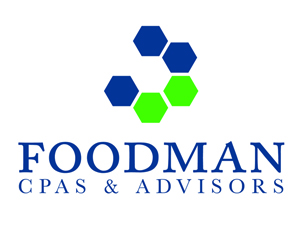On 2/6/2020, the U.S. Department of the Treasury issued the BSA 2020 National Strategy for Combating Terrorist and Other Illicit Financing (2020 Strategy). The purpose of the 2020 Strategy is to:
• Modernize the U.S. anti-money laundering/countering the financing of terrorism (AML/CFT) regime and make it more effective and efficient.
• Increase transparency and close gaps in the U.S. BSA/AML and CFT legal framework.
• Improve the efficiency and effectiveness of the U.S. BSA/AML and CFT regulatory and supervisory framework for financial institutions.
• Enhance current BSA/AML and CFT operational capabilities.
The U.S. Treasury Department stated: “As we mark the 50th anniversary of the enactment of our first AML/CFT law, this 2020 National Strategy for Combating Terrorist and Other Illicit Financing (2020 Strategy) employs a whole-of-government approach to guide the public and private sectors in addressing 21st century illicit finance challenges. It lays forth a vision to further the USA PATRIOT Act’s purpose to “increase the strength of United States measures to prevent, detect, and prosecute international money laundering and the financing of terrorism”.
The 21st century illicit finance threats
• Money Laundering from various crimes including fraud
• Drug Trafficking
• Terrorist Financing
• WMD Proliferation Financing
• Organized Crime
• Human Trafficking
• Corruption
The Key Vulnerabilities Exploited are:
• Lack of Beneficial Ownership Information
• Real Estate
• Correspondent Banking
• Uneven AML Obligations
• Compliance Weaknesses
• Cash
• Complicit Professionals
• Digital Assets
2020 Strategy Priorities and Supporting Actions
- Increase Transparency and Close Legal Framework Gaps
- Require Collection of Beneficial Ownership Information by the Government at Time of Company Formation and After Ownership Changes
- Minimize the Risks of Laundering Illicit Proceeds Through Real Estate Purchases
- Extend AML Program Obligations to Certain Financial Institutions and Intermediaries Currently Outside the Scope of the BSA
- Clarify or Update our Regulatory Framework to Expand Coverage of Digital Assets
- Continue to Improve the Efficiency and Effectiveness of Regulatory Framework for Financial Institutions
- Improve the Efficiency of Existing Reporting Obligations
- Emphasize the Risk-focused Approach to Supervision
- Foster Responsible Innovation
- Enhance the Current AML/CFT Operational Framework
- Improve Communication of Priority of Illicit Finance Threats, Vulnerabilities and Risks
- Expand the use of Data Analytics and Artificial Intelligence
- Creatively and Effectively Deploy Targeted Measures to Disrupt Illicit Finance Activity
- Enhance use of Public-Private Partnerships and Other Information Sharing
- Support Global AML/CFT Implementation
The 2020 Strategy addresses Key Gatekeeper Professions
The report states that the U.S. Law Enforcement has increased its focus on facilitators (complicit professionals) which includes individuals in the financial sector, real estate agents, lawyers, and accountants. Furthermore, investigators are seeing the use of lawyer trust accounts for anonymizing money transmissions not associated with the provision of legal services. There is mention of “complicit attorneys” that may allow illicit proceeds to be deposited in their Interest on Lawyer Trust Accounts (IOLTAs) and then launder the funds through the purchase of real estate or investments, or by transferring the money out of the United States. Since the funds held in an IOLTA account are “pooled”, the bank holding the IOLTA account has no direct relationship with or knowledge of the ultimate beneficial owner(s) of the funds in the account.
The U.S. AML/CFT regime needs to stay ahead of the evolving illicit finance threats
The Secretary of the Treasury established the Bank Secrecy Act Advisory Group (BSAAG) consisting of representatives from federal regulatory and law enforcement agencies, financial institutions, and trade groups whose members are subject to the requirements of the Bank Secrecy Act. Using the BSAAG, regulators, law enforcement, and the private sector are studying ways to improve the efficiency and effectiveness of the U.S. AML/CFT framework.
The 2020 Strategy clearly indicates that: “most notably the lack of a requirement to collect information on the true owners of companies, must be closed”. As a result, it appears that the Government will focus on making the collection of beneficial ownership information a requirement at the time of company formation and after ownership changes.


